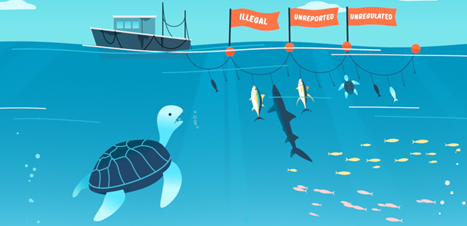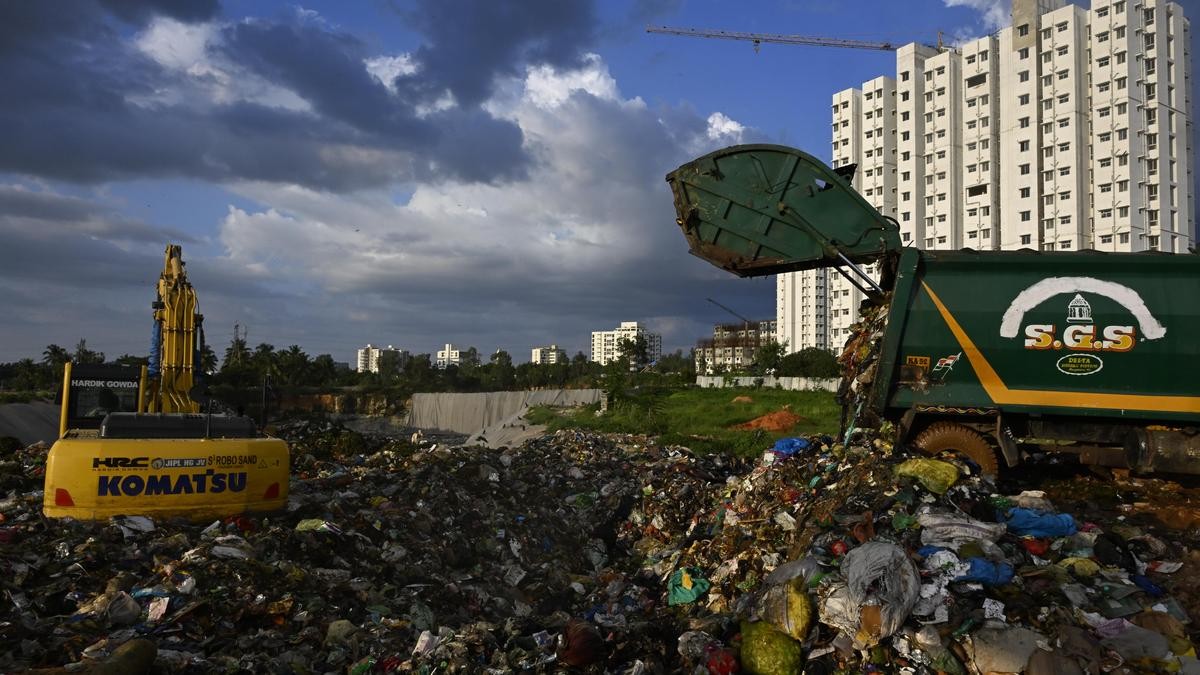Description

Disclaimer: Copyright infringement not intended.
Context
- As many as 392 reported incidents of illegal, unreported and unregulated fishing were monitored in 2021 compared to 379 in 2020 in the Indian Ocean- Indian Navy.
Findings of Information Management and Analysis Centre (IMAC)
- Chinese fishing vessels, fishing vessels from European Union countries and other countries from outside the region were observed to be fishing in the Indian Ocean. Most of the illegal activity is found in the Northern Indian Ocean Region (IOR).
- There has been a growing incidence of Chinese deep sea fishing trawlers in the Indian Ocean in addition to an overall rise of China’s maritime presence in the region.
Illegal, Unregulated Fishing, and Underreported Fishing (IUU Fishing)
- Illegal Fishing refers to fishing activities conducted by foreign vessels without permission in waters under the jurisdiction of another state.
- Unregulated Fishing on the other hand refers to fishing activities in areas where there are no applicable management measures to regulate the catch; this is the case in the South Atlantic, for example.
- Unreported fishing: It means Fishing which has not been reported, or have been misreported, to the relevant national authority, in contravention of national laws and regulations; or is undertaken in the area of competence of a relevant regional fisheries management organization which have not been reported or have been misreported, in contravention of the reporting procedures of that organization.
Global Scenario
- IUU fishing is a global problem, occurring in the South China Sea, off the west coast of Africa (where estimates put illegal catch at 40 percent), off both coasts of South America, in the eastern Indian Ocean, throughout Oceania, and around Antarctica.
- According to the Global Initiative Against Transnational Organized Crime’s IUU Fishing Index, which benchmarks countries’ vulnerability to, prevalence of, and response to IUU fishing, four of the top five worst-scoring countries are in Southeast Asia. China tops the list, and Russia is the sole non–Southeast Asian country, at number four.
- In one particularly egregious example, in 2020, a fleet of 350 Chinese vessels was observed conducting predatory high-seas fishing around Ecuador’s Galapagos Islands, a UN Educational, Scientific and Cultural Organization (UNESCO) World Heritage site.
Impact of Illegal. Unregulated and Unreported Fishing
- In many maritime regions of the world, illegal fishing has massively contributed to the depletion of fish stocks, especially in developing countries’ coastal waters.
- Illegal fishing is a key driver of global overfishing, it threatens marine ecosystems, puts food security and regional stability at risk, and is linked to major human rights violations and even organized crime.
- The global supply chain is complex and weakly regulated and illegal fish can penetrate the supply chains quite easily.
- IUU fishing undermines national and regional efforts to conserve and manage fish stocks and, as a consequence, inhibits progress towards achieving the goals of long-term sustainability and responsibility.
- In 2020, the U.S. Coast Guard said that IUU fishing has replaced piracy as the leading global maritime security threat. It is estimated that up to one in every five fish caught around the world is obtained through IUU fishing, representing about a $23 billion annual loss for the legal fishing industry. And, in large part, the poorest countries in the world, which depend on fisheries for food and livelihoods, are hit the hardest.
- Fish is an essential protein source for over 40 percent of the global population. IUU fishing can decimate fish stocks, undermining a country’s ability to feed its people.
- Further, IUU fishing can disrupt and destabilize the fragile economies of coastal states. Small island nations are particularly vulnerable, in that many have vast ocean resources but very limited capacity to patrol their exclusive economic zones, or EEZs. Many of these small nations also struggle to apprehend and prosecute transgressors.
- IUU fishing often happens along with other unlawful activities, including human trafficking and forced labor. Interpol reports that fishing vessels are often used to smuggle people, drugs, and weapons, as well as to carry out acts of piracy and terrorism. IUU fishing activities are highly mobile, increasingly sophisticated, and sometimes conducted with logistical and security support from fishers’ flag states.
Challenges in combating IUU fishing
- The ocean is vast, and monitoring it for illegal fishing and enforcing laws that criminalize this activity continue to be big challenges.
- Many countries have insufficient resources for patrols at sea and remote surveillance, leaving much of their 200-nautical-mile exclusive economic zones (EEZs) vulnerable to illegal operators. Many also lack sufficient regulations, oversight, or inspections at ports.
- There are two main regulations globally on IUU fishing: the Cape Town Agreement and the Agreement on Ports State Measures. So far, India is not a signatory of either agreement.
- Fishing vessels across the world are supposed to have vehicle management systems installed which not only identify their position, but also requires them to record the volume and location of their catch, helping to tackle the issue of IUU fishing. For instance, the European Union has made it mandatory to provide this information for all fish imports. In India, while larger vessels, over 20 metres in length, have such Automatic Identification Systems installed, similar efforts for sub-20 metre vessels have been delayed.
|
Joint Quad monitoring
Recognising the impact of IUU fishing which can lead to the depletion of fish stocks affecting marine ecology, the Quad, comprising India, Australia, Japan and U.S., in May 2022 announced a major regional regional effort under the ambit of Indo-Pacific Maritime Domain Awareness (IPMDA). It aims to provide a more accurate maritime picture of “near-real-time” activities in the region. IPMDA is expected to catalyse joint efforts of India and other Quad partners towards addressing IUU in Indo-Pacific region.
All vessel movements on the high seas are monitored by the Indian Navy’s IMAC in Gurugram and the Information Fusion Centre-Indian Ocean Region (IFC-IOR) which is co-located with it. IFC-IOR has been collaborating with other regional monitoring centres across the globe to enhance maritime safety and security, including efforts to monitor IUU. Example: It undertakes satellite monitoring of vessels operating in the IOR to track such vessels.
|
Way Ahead
- Developing an international fisheries enforcement regime will significantly reduce IUU fishing.
- A globally consistent means of identifying and tracking fishing vessels and their history.
- Reliable, near-real-time, and transparent information sharing among port, flag, and coastal states.
- Political will.
- Trained and ready enforcement personnel willing and able to act.
- States to take responsibility for the vessels they flag and a mechanism to assess their compliance.
- Robust regional and international policies with adequate legal frameworks to carry them out.
- Strict regulation of transhipment on the high seas and in port.
- Making it mandatory for all merchant vessels to install the Automatic Identification System (AIS), which helps in tracking vessels at sea.
- All port states need to become Party to the FAO Agreement on Port State Measures to Prevent, Deter and Eliminate IUU Fishing (PSMA).
- Real-time information sharing and global data on high seas fishing vessels and their activities is critical to deter IUU fishing. It also helps in tracing defaulting vessels. This requires robust maritime domain awareness, which is technology intensive.
- Fish traceability is an effective mechanism to curb IUU fishing. For instance, the US National Ocean Council Committee to Combat Illegal, Unreported and Unregulated Fishing and Seafood Fraud has proposed a seafood traceability system that will collect data about harvest, landing, and chain of custody of fish and fish products brought into the United States and if the catch is found suspicious, list it as seafood fraud.
- The civil society organizations can play an important role as watchdogs and compliment international, regional and State efforts to curb IUU fishing.
- Port states also can play a significant role by blocking vessels engaged in IUU fishing from using their ports and landing their catches.
Closing Thoughts
- IUU fishing is an important issue of concern under the ten targets contained in Sustainable Development Goal (SDG) 14. It, therefore, becomes incumbent on the States to understand the impact of IUU fishing on the marine ecosystem and food supply chain both for life at sea and humanity This can be achieved by developing effective measures to enhance transparency, institute accountability, and develop technological capability to monitor IUU fishing in international waters.
- IUU fishing can only be combated by a whole-of-world approach, presenting an opportunity for state-to-state cooperation.
- The world needs to collectively continue to fight the scourge of IUU fishing in order to protect sensitive marine environments and food sustainability, prevent irreparable damage to coastal economies, counter corruption and associated criminal activity, and uphold the sovereignty and security of the world’s maritime nations.

https://www.thehindu.com/news/national/extra-regional-fishing-fleets-present-in-indian-ocean-navy/article66131872.ece
https://www.worldwildlife.org/threats/illegal-fishing
https://www.fao.org/iuu-fishing/background/what-is-iuu-fishing/en/












